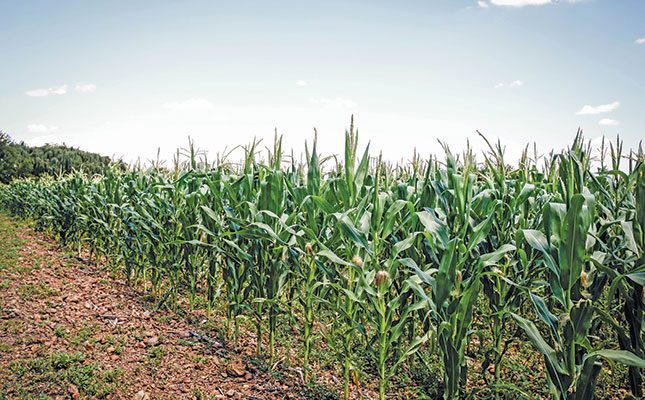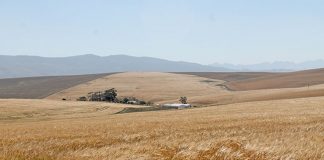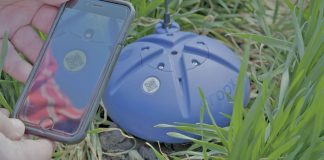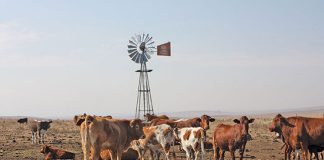
Photo: Supplied
Navigating the ins and outs of legal water use can be a confusing exercise. Here, Johan Enslin and SJ Jansen van Rensburg, directors of Integrated Water Use License Application Management, a company that specialises in the management of water-use licence applications, explain the South African government’s complicated water-use regulations.
The legal use of water in South Africa starts with the National Water Act (No. 36 of 1998). Since this is a water-scarce country, every citizen has a moral and legal obligation to protect its water resources.
The purpose of the National Water Act (NWA) is to ensure that the country’s water resources are protected, used, developed, conserved, managed and controlled in ways that take into account the following factors, among others:
- Meeting the basic human needs of present and future generations;
- Promoting equitable access to water;
- Redressing the results of past racial and gender discrimination;
- Promoting the efficient, sustainable and beneficial use of water in the interest of the public;
- Facilitating social and economic development;
- Providing for the growing demand for water use;
- Protecting aquatic and associated ecosystems and their biological diversity;
- Reducing and preventing the pollution and degradation of water resources;
- Meeting international obligations;
- Promoting dam safety; and
- Managing floods and droughts.
As the public trustee of South Africa’s water resources, government, acting through the minister of water and sanitation, must ensure that what is set out in the NWA benefits all persons and is in accordance with its constitutional mandate.
The minister is ultimately responsible for ensuring that water is allocated equitably and used beneficially in the public interest, while promoting environmental values. In addition, the minister has the power to regulate the use, flow and control of all water in the country.
Therefore, as custodian of South Africa’s water resources, the Department of Water and Sanitation (DWS) must regulate the use of water by means of water-use authorisations.
Whether it is through existing permits, lawful water-use certificates or declarations, licences or general authorisations, the authorisation processes are mechanisms for the implementation of government objectives and mandates.
Registration of water use
The NWA provides the DWS with the tools to gather the information needed for the optimal management of South Africa’s water resources. Water-use registration is one of these tools.
There is a misconception in the agriculture sector that any document issued by the DWS indicating the registration of water use automatically means the use of said water is legal.
However, the opposite is true: a successful water-use registration is not proof of legal water use, but rather proof that the DWS is aware of the water use.
The DWS must first be aware of the water use before it can be determined whether it is legal or not. The fine print on a registration certificate also indicates that it may not be used to create the impression that the company or individual who holds said certificate has a legal right to the water in question.
For example, if the abstraction of water from a borehole is registered, it doesn’t necessarily make this abstraction legal. If no existing lawful water use can be linked to the registration, a general authorisation or water-use licence is still required.
Regulations published in the Government Gazette of 12 November 1999 state that any person who uses water in terms of Section 21 of the NWA, which identifies the different types of water uses, must register such use.
These regulations also apply to existing lawful water use and water use that falls within the range of general authorisations.
The purpose of water-use registration is to systematically gather and record water-user data for the optimal management of the country’s water resources. It is also aimed at ensuring the equitable allocation of water, protecting the environment, and enabling the DWS to charge for the use of water. This process involves users having to answer questions about how much water is being used, by whom, and for what purpose and where.
Due to the complexity of the registration and water-use authorisation processes, we have found that the simplest way is to determine or confirm from the outset the existing lawful water use together with the DWS.
The next step would be to launch a water-use licence application or a general authorisation process. In this way, the registration process can, by default, be completed at the same time as the water-use licence application process, instead of going through two separate processes.
Water use in agriculture
In terms of Section 21 of the NWA, the main agriculture-related water uses that must be authorised by means of a general authorisation or water-use licence are as follows:
- Taking ground or surface water from a water resource, such as a river, borehole or dam in significant volumes;
- Storing water in dams in significant volumes, as is required for commercial agriculture;
- Impeding or diverting the flow of water or altering the bed, banks, courses or characteristics of a watercourse;
- Engaging in a stream-flow-reduction activity, as is the case with forestry;
- Engaging in a controlled activity, such as irrigating with wastewater that may have an impact on ground and/or surface water, as is the case with wastewater generated from a feedlot;
- Discharging waste or wastewater into a water resource through a pipe, canal, sewer, or other conduit; and
- Disposing of waste in a manner that may have a detrimental effect on ground and/or surface water, such as septic tanks, oxidation ponds or any containerised wastewater facilities.
Different water-use authorisations
Any new water use that began after August 1998 must be licensed in terms of Section 21, unless:
- The water use is authorised under Schedule 1 (permissible use of water) of the NWA;
- The water use is permissible as a continuation of an existing lawful water use;
- The water use is permissible in terms of a general authorisation; or
- A responsible authority has dispensed with the requirement for a water-use licence.
Although general authorisations, water-use licence applications and the registration of an existing lawful water use may seem like simple processes, they are notoriously complex.
A general authorisation is necessary for activities with a limited impact on water resources; a water-use licence application is generally required for activities that have a significant or potential impact on water resources; and the registration of an existing lawful water use generally entails the verification of said existing water use permitted under previous legislation prior to 1998. Meanwhile, Schedule 1 entails the reasonable use of water for domestic and non-commercial purposes, and doesn’t require any authorisation.
Nonetheless, whichever process is followed, it must be confirmed with the DWS. During this process, the proposed or existing water use will be assessed in collaboration with the DWS to obtain a clear way forward in terms of what would be required to become legally compliant in terms of the NWA.
NWA Offences
In terms of the unlawful use of water in South Africa, any person who contravenes any provision of Section 151 of the NWA, which details offences in this regard, is considered guilty of an offence and, upon first conviction, is liable to either a fine or imprisonment for up to five years, or both. In the case of a subsequent conviction, he or she is liable to a fine or imprisonment for up to 10 years, or both.
Email Johan Enslin at [email protected], or SJ Jansen van Rensburg at [email protected]. Visit iwula.org.











